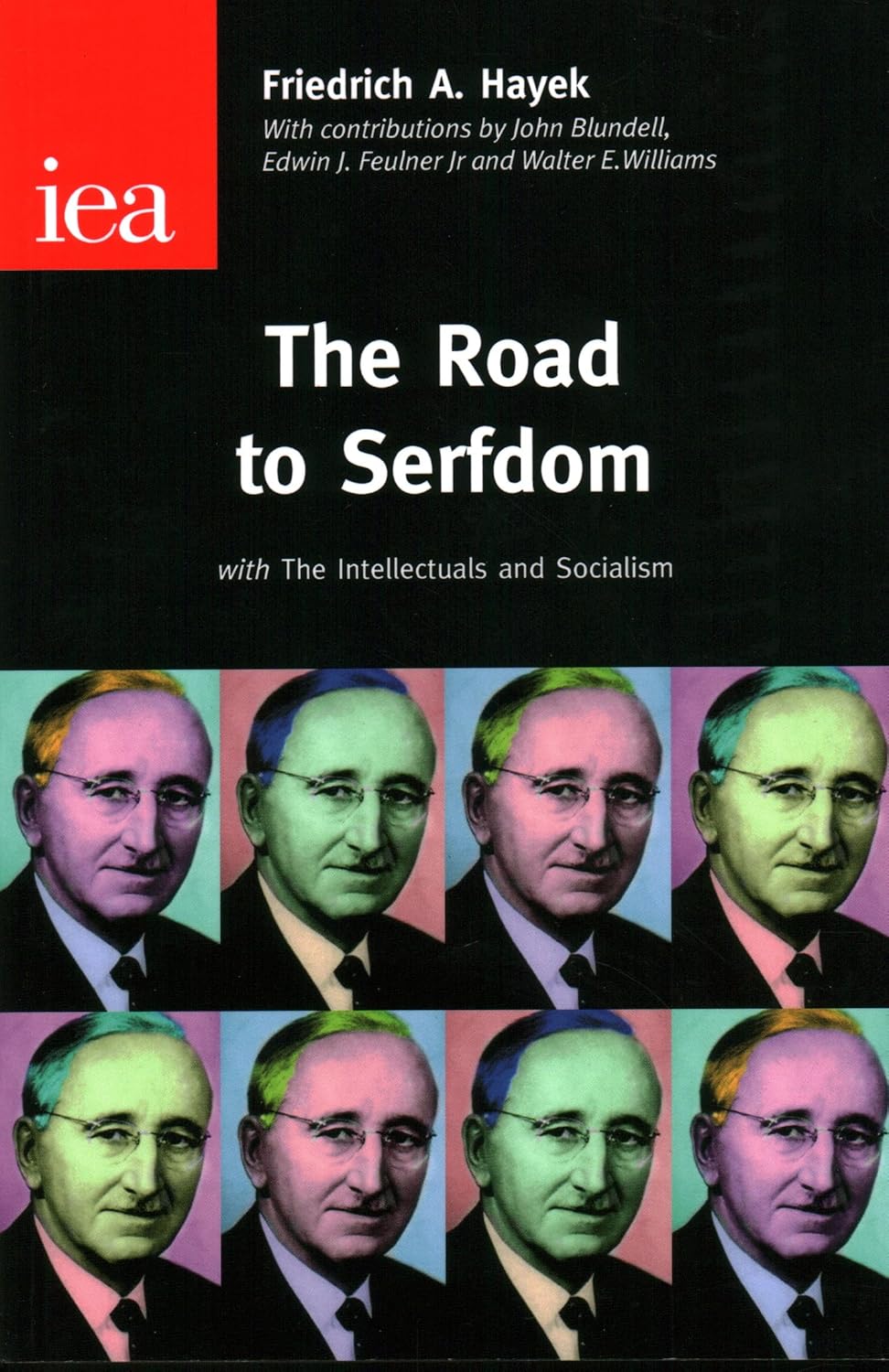The Road to Serfdom: A Timeless Defense of Freedom
Friedrich Hayek’s The Road to Serfdom remains one of the most powerful and enduring critiques of socialism and central economic planning, making a compelling case for the preservation of individual freedom and market-based economies. Published in 1944, in the midst of World War II, Hayek’s arguments have since resonated across decades, serving as a warning against the perils of collectivism. Written during a time when central planning was gaining traction as a solution to economic and social challenges, Hayek’s work stands out as a beacon of clarity in defense of personal liberty and free markets.
The Central Argument: Planning and Freedom are Incompatible
At its core, The Road to Serfdom asserts a clear message: attempts to centrally plan economic activity, even with the best intentions, inevitably lead to tyranny. Hayek argues that the more the state controls economic decision-making, the more it must erode individual freedom. Planning requires imposing a single vision or set of goals on society, but in doing so, it sacrifices the ability of individuals to pursue their own ends. This loss of freedom is not just an economic loss—it is a moral one, as it strips individuals of the ability to choose their own paths in life.
Hayek emphasizes that a free market, with its decentralized decision-making, is the only system that can accommodate the diverse needs, wants, and talents of individuals. In a market economy, individuals are free to make choices, and those choices shape the outcomes of society as a whole. This process, far from chaotic, is what Hayek sees as the embodiment of true liberty.
Hayek’s Prescient Warnings
One of the most remarkable aspects of The Road to Serfdom is how prophetic Hayek’s warnings have proven to be. He was writing at a time when many intellectuals and policymakers were enamored with the idea of central planning, influenced by the successes of wartime economies and the allure of the Soviet model. Yet Hayek saw the danger in these trends. He warned that once the state assumes control over the economy, it inevitably seeks to control other aspects of life. Political and personal freedoms would, by necessity, be sacrificed in the name of economic goals.
Hayek was particularly concerned about the way collectivist ideologies tend to concentrate power in the hands of a few. Those who advocate for planning, he argued, rarely account for how the planners themselves might misuse their authority. As state power grows, it creates a system where coercion becomes necessary to enforce the state’s plans, leading down a dangerous path toward authoritarianism.
A Moral Case for Capitalism
In contrast to collectivist ideologies, Hayek makes a strong moral case for capitalism. He argues that the free market system is the only economic order that allows for both personal freedom and social cooperation. Through voluntary exchanges, individuals work together to create wealth and solve problems, all without the heavy hand of government intervention. Capitalism, for Hayek, is not merely about efficiency or economic growth; it is fundamentally about the right of individuals to shape their own destinies.
Furthermore, Hayek’s defense of capitalism extends beyond economic theory. He sees it as a system that respects human dignity, where individuals are treated as autonomous beings capable of making their own decisions. In contrast, socialism treats people as mere cogs in a machine, where their personal aspirations are secondary to the goals of the collective. By preserving individual freedom, capitalism enables human flourishing in ways that planned economies cannot.
The Continued Relevance of The Road to Serfdom
Decades after its publication, The Road to Serfdom continues to be relevant. As governments around the world grapple with questions about how much control they should exert over the economy, Hayek’s arguments remind us of the dangers of excessive state intervention. Whether in the context of debates over healthcare, environmental regulation, or economic inequality, the central tension Hayek identified—the balance between state control and individual liberty—remains at the heart of political discourse today.
Hayek’s work also serves as a reminder that good intentions do not guarantee good outcomes. While many advocates of central planning genuinely seek to improve society, Hayek warns that their methods can lead to unintended consequences, including the erosion of freedom and the concentration of power in the hands of a few.
A Defense of Liberty
The Road to Serfdom is not just a critique of socialism; it is a powerful defense of freedom. Hayek’s work challenges us to remember that liberty is fragile and that even the most well-intentioned policies can, over time, chip away at the very freedoms they claim to protect. His vision of a free society, where individuals are empowered to make their own choices and pursue their own dreams, is one that continues to inspire.
In a world where calls for government intervention are common, Hayek’s defense of the free market and individual liberty serves as a reminder of the risks inherent in surrendering control to the state. The Road to Serfdom stands as a timeless work, offering a vital message: the path to freedom lies not in central planning, but in the preservation of individual choice and market competition. For those who value liberty, Hayek’s warnings are as relevant today as they were in 1944.

